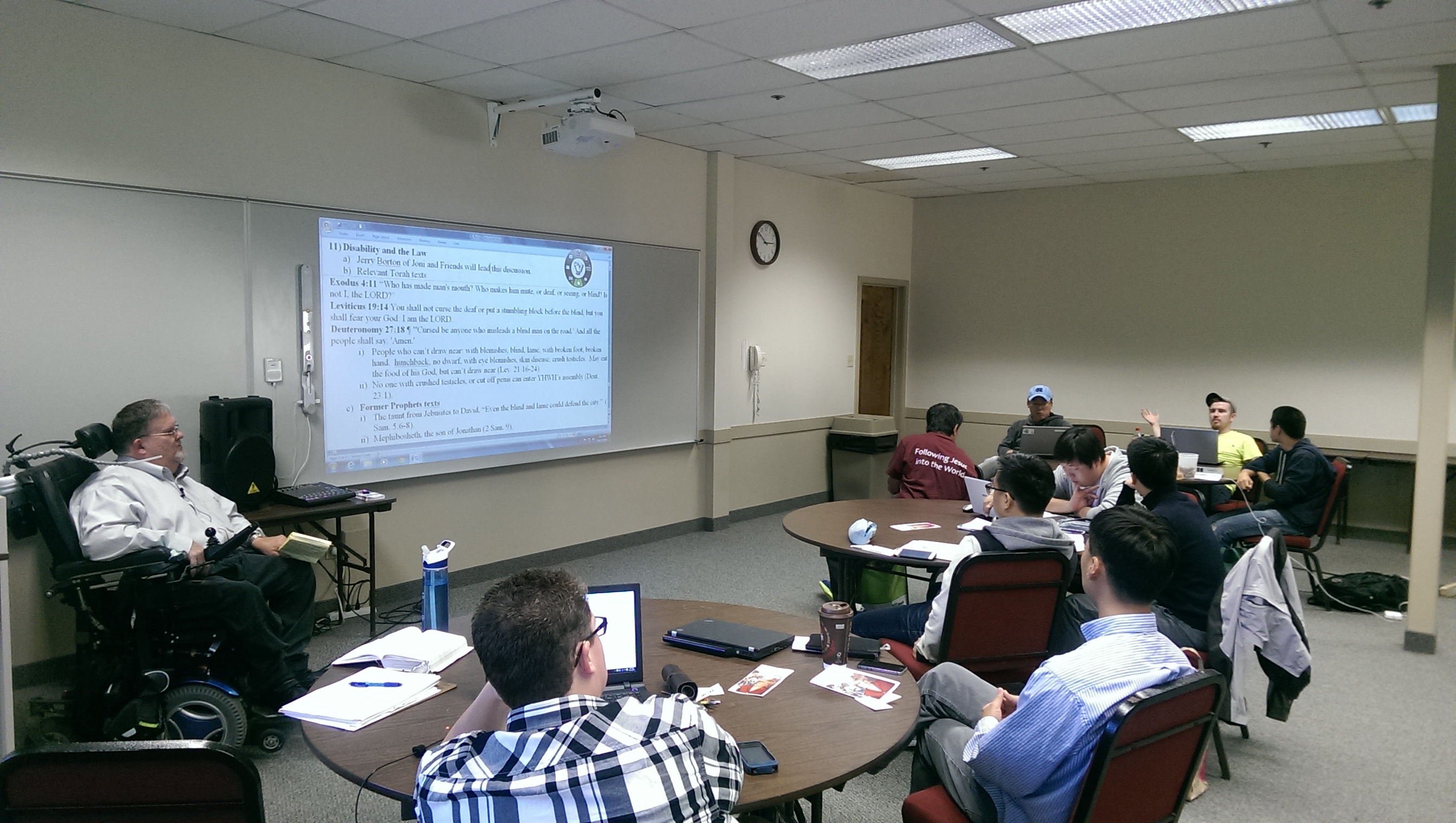When I told my housemate Herman, who has cerebral palsy that I would be teaching a course on the biblical books of Leviticus, Numbers and Deuteronomy, he asked me, “Why does God discriminate against people with disabilities?”
I said, “That’s a great question. We should probably talk about that question in our class.” So, I invited my friend Jerry Borton, who works with Joni & Friends Ministries, a ministry to people with disabilities, to come to my class and lead our discussion on this topic. Jerry also has cerebral palsy.
Jerry led us in a discussion of various texts. We started with Leviticus 21:16-24, probably, the most problematic passage on this subject since it prohibits anyone with a disability from serving as a priest and offering sacrifices. Anyone who has damaged body parts, including feet, hands, eyes, backs, skin or testicles, would be prevented from serving in a priestly capacity. The context of makes it clear that priests needed to have no physical impairments.
Jerry made the point that physical labor would have been involved in the rites associated with sacrifice, so some of these people with disabilities might not be able to adequately perform what was necessary.
We weren’t able to fully explain away the problem here, but there were several points which helped us as a class understand it better, and made the Leviticus 21 restriction seem slightly less problematic.
1) All priests, even those with disabilities, could share in the meal of the sacrifice (Lev. 21:22). They would be provided for and not excluded from eating all of the meat that was offered.
2) Other groups of people were also excluded from the priesthood, including Israelites who were not of the tribe of Levi and all women, so the vast majority of Israelites were not able to serve as priest. However, ultimately, God wants all of his people to serve as priests for the nations (Exo. 19:6; 1 Pet. 2:9).
3) Other Old Testament laws clearly advocate for the disabled and mandate punishments for people who harm people with disabilities (Lev. 19:14; Deut. 27:18). God says, “Don’t mess with them. I’ve got their back.”
We looked at one other problematic text, where God tells Moses that he is the one who makes someone mute, deaf, seeing or blind (Exo. 4:11). But going against the trajectory of this passage from Exodus is the rest of Scripture. The book of Isaiah tells us that God is going to be healing people with disabilities: the deaf will hear, the blind will see (Isa. 29:18), the lame will leap, the tongue of the mute will sing (Isa. 35:6). Similar ideas are repeated in other prophetic texts (Isa. 42:18; Zeph. 3:19). God is going to be healing these various conditions.
Then of course, we see Jesus fulfill these words from Isaiah as he spends all of his free time healing people with sickness or disability. Jesus even references Isaiah 35 in response to John the Baptist’s honest question, “Are you the one?” revealing that the healing of people with disabilities is a sign that he’s the Christ.
And Jesus tells a parable about inviting people with disabilities to the banquet which represents the Kingdom of God (Luke 14). And in the preamble to the parable, Jesus declares that hosts who include the poor, the crippled, the lame and the blind to their parties, will be blessed by God (Luke 14:12-14).
I’m still a bit troubled by Leviticus 21, but the rest of Scripture makes it clear that God wants everyone, you and me with all of our various disabilities, at his party.

